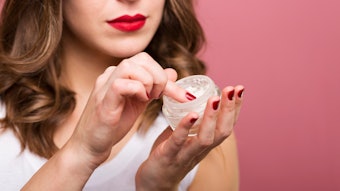
Editor's note: This month, November 2020, marks nine years since the industry lost one of its great thinkers, Johann W. Wiechers, Ph.D. In remembrance, we offer the following revival of insights he shared with Tony O'Lenick in 2008, in what was one of our first "Comparatively Speaking" columns. His comments are just as relevant today.
In this installment of 'Comparatively Speaking,' Tony O’Lenick poses the question: What’s the difference between a matter and a mind claim? Industry expert Johann Wiechers, Ph.D., explains.
Claims are statements made about the nature, the chemical composition or the performance of a cosmetic product, normally used in advertising in an attempt to enhance sales of a product. The latter, however, is not strictly necessary and words and/or images on the packaging or inserts containing product information can also contain cosmetic claims.
Claims have become much more to the forefront of cosmetic science since the advent of the 6th Amendment to the Cosmetic Directive in Europe about a decade ago. Whereas this created havoc initially in the minds of marketers and techies, the heart of the matter is that it has helped cosmetic science to progress.
Whether it has progressed enough remains to be seen. On a regular basis, I am still being asked to deliver talks on the subject whether cosmetic products really deliver their promise.
A matter claim is any claim that is being substantiated by performing a measurement.
One of the recent progressions has been the emergence of mind claims in contrast to the more traditional matter claims. Therefore, what is the difference between a mind claim and a matter claim? As the person that invented the terminology, I can be proud and state that my definition is per definition correct simply because I invented it.
But it is probably more important to see if these definitions turn out to be useful. I was therefore glad to see that at the recent Advanced Technology Conference, held in Miami in February 2006, Nalini Kaul beautifully described the various cosmetic claims as being either emotive claims, ingredient claims or product claims. It was therefore time for a new sort of claim: the mind claim.
Matter Claims
A matter claim is any claim that is being substantiated by performing a measurement on a hard physical matter such as skin, hair, the buccal mucosa, etc.; a tangible subject, although the subject does not always have to be hard, as you can also measure the viscosity of a lotion and claim that in a matter claim.
A common aspect of all these substrates on which a measurement is performed is that it is something that can physically be touched and felt. But there are many other soft spots in cosmetic science, i.e., the feel of a product, the pleasure of using a cosmetic product, the well-being and "feel good, look better" type of intangible claims.
Were do I place my meter (and what meter?) if I want to know how relaxed a subject feels when using my latest cosmetic product, how their stress evaporated when they applied my aromatherapeutic cocktail, or how much their well-being was improved due to that luxuriously packed formulation?
All these types of measurements involve measuring what is happening in the brain and use the mind-skin connection. Because the brain is, under normal circumstances, an intangible matter, I call these mind claims.
There are many other soft spots in cosmetic science such as the well-being and 'feel good, look better' type of intangible claims.
Mind Claims
Substanatiation, then, is done in exactly the same way. One needs to know the claim first so that the right test can be designed using the right equipment and measuring the right substrate. In mind claims, this is measuring well-being, which can be measured via questionnaires.
But if the skin is treated via the brain (for instance, as the cosmetic product range qiora from Shiseido does), one has to scratch their brain as to what a placebo actually is, as the typical right-left separation of arms and face no longer work.
Mind over matter, but whose mind is it anyway, and more importantly, does it matter?










